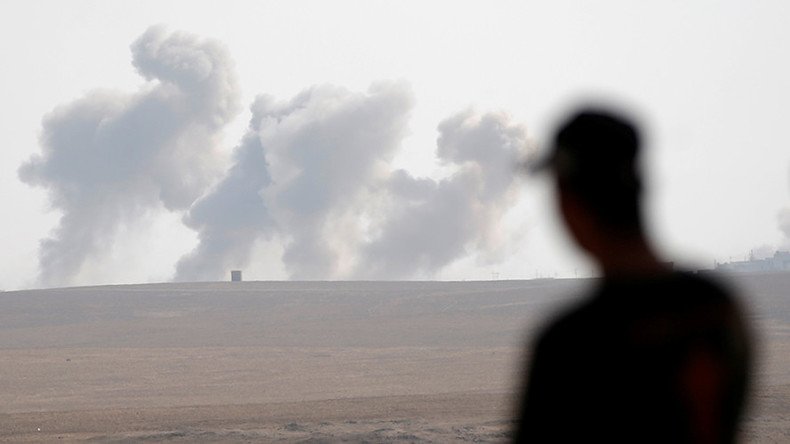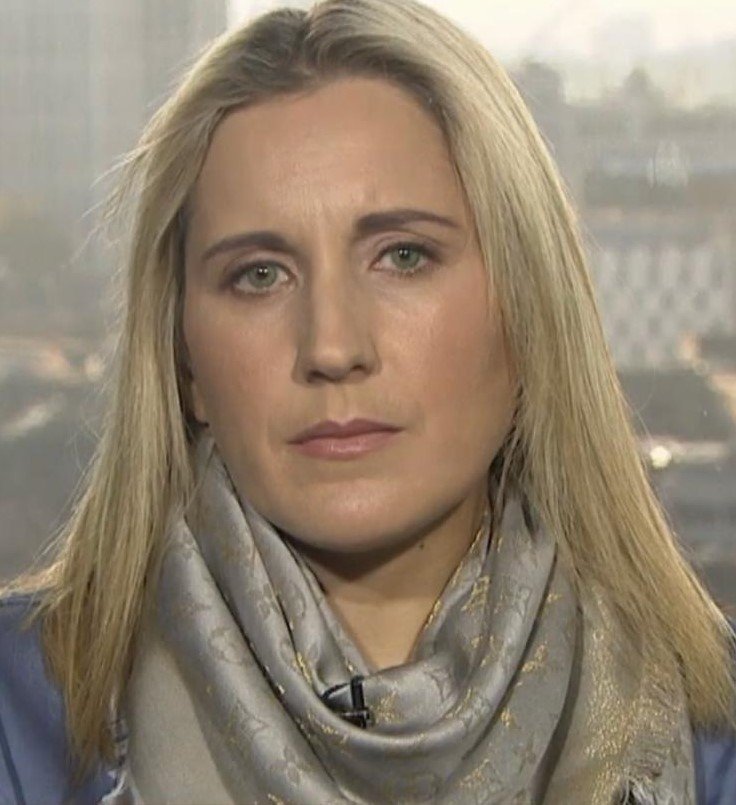Washington D-Day 2.0 in Syria and Iraq – Who are they kidding?

The energy it takes to be a US official those days! When Washington is not busy muddying the political waters with its whitewashing of radicalism, it is playing liberation games in the Levant. Alas, the US wants Raqqa and Mosul free at once.
And so I ask: Who are they kidding?
What is getting our US officials so agitated that they want to re-enact D-Day in not one, but two countries? Could it be the looming presidential elections? Hardly! What US presidency would want to start its mandate with peace in the Middle East? Let’s be serious for a second.
READ MORE: 'US succeeded only in creating chaos in Syria, Iraq’
It’s not Christmas, it’s certainly not global warming, and for once, Russia has nothing to do with it. Hold on right there. It’s the R-word. See, everything can be explained by mentioning Russia.
Seriously though, can we all agree that America’s sudden burning desire to cripple radical militias is more than just a little worrying and devilishly opportunist – especially when its new narrative provides for a grand fanning of ethno-sectarian lines, notwithstanding the murder of national sovereignty?
Earlier this week, a report in Bloomberg, one of the pillars of the US media, announced with drum rolls that Washington had a wondrous, new plan to rid the world of Daesh, and in one smooth swoop restore Liberty’s torch over the darkened skies of Arabia. It read: “With the battle for the Iraqi city of Mosul barely begun, the US and its allies say they need to move within weeks on the other remaining Islamic State stronghold, Raqqa in Syria. The trouble is that no one can agree on who should do the actual fighting.”
Did you catch that “who should do the actual fighting” line? Washington, of course, is not asking any real question, only using its media echo-chambers to make it seem as though there is an actual, genuine debate over the issue.
It only takes a few lines for Bloomberg to sell its little piece of propaganda: “The US commander of the campaign against Islamic State says the only group capable and ready for such a battle is the Syrian Democratic Forces, made up largely of Kurdish fighters.”
Mosul will be Obama's first chapter of his Middle East legacy, not his last (Op-Edge by @MartinRJay) https://t.co/BclccnHohG
— RT (@RT_com) October 27, 2016
Well there you go. The answer to terrorism lies with the Kurds. Never mind what Iraq and Syria have to say about it; never mind the fact that activating Kurdish militias in such a manner could potentially explode some very delicate geopolitical dynamics, and never mind the fact that it would pretty much further allow foreign patronage to grab hold of a region already plagued by covert colonialism.
The argument so far has been that only the Kurds can successfully back Washington’s efforts in liberating Raqqa from ISIS militants, and of course, away from the control of Damascus. The key word being “away” from Damascus.
“The main challenge in retaking Raqqa has always been who will lead the fight on the ground, with support from US and allied advisers and air power, and whether those forces can be trained quickly enough,” reads Bloomberg. The only real challenge ever for Washington has been to assert control over Syria at a time when Syria’s government has managed to loosen terror’s grip on its sovereignty by aligning itself with actors interested in playing by international law’s rule book. I bring you Russia and Iran.
Washington’s only play in the face of Russia’s advances against radicals is to add another layer of complicated to an already impossible situation, and of course, the Kurds are a convenient patsy here.
While I will not deny Kurdish militias’ ability to defeat the Black Flag Army, it is America’s ulterior motives in bringing them to the table at this exact juncture I question – especially since it has been made abundantly clear that the US is not interested in fighting Islamic radicalism. If anything, it is America which weaponized radicalism and played it to the tune of its military expansionism.
Let us put aside Daesh for a second and consider instead what the regional repercussions a US-backed, US-empowered Kurdish military movement will look like on the ground, because ultimately this is what Washington is proposing. Understand here that I am not making a case for or against Kurdish independence; I am merely looking at geopolitics.
Empowering the Kurds at this moment in both Syria and Iraq’s history equates to a de facto Balkanization of the Levant. Beyond that, such a move represents a direct attack against Turkey’s territorial integrity. Something tells me Ankara will have a problem with that.
US ‘laying groundwork’ for #Raqqa assault, no role for #Russia – Carter https://t.co/nThKAt0PUUpic.twitter.com/0DQL27lSA3
— RT America (@RT_America) October 26, 2016
Again, I am not passing judgement on the Kurds’ right to claim a nation for themselves. I’m only pointing out those dynamics which will be activated should Washington play its destabilization card.
The Kurds were always Washington’s wild card should radicals... sorry – moderates, fail to depose Syrian President Bashar Assad. Incidentally, the Kurds could also carry enough of a blow to Ankara that one pesky Turkish President Recep Erdogan could be deposed. It’s not like the US tried to stage a coup, right?
America’s sudden Kurdish epiphany is really not – rather, it is a last ditch attempt to manifest and project a very US-driven political reality onto the Middle East at a time when resistance has become a palpable geopolitical movement.
Neither Syria nor Iraq need the United States to fight Islamic radicalism. I would personally argue that both nations were reborn in their resistance against this abominable form of theo-fascist imperialism which is Wahhabi-extremism.
And so, what is a desperate neocon to do but to further fan unrest?
Svetlana Kalmykova, a columnist for Sputnik news, put it beautifully when she wrote: “The United States is trying to secure a firmer footing in Syria at a time when Al-Nusra Front and similar organizations are under threat of being destroyed. They are desperately fighting against the advancing Syrian Arab Army in Aleppo."
So next time you hear a US official mention Raqqa, Mosul, and Kurds in the same sentence, hear it as: imperial desperation.
One more thing we might want to contemplate as powers argue over Syria and Iraq – before we go about liberating nations, we might want to consult them first. If not, we might precipitate the death of such principles as national sovereignty and territorial integrity.
The statements, views and opinions expressed in this column are solely those of the author and do not necessarily represent those of RT.













